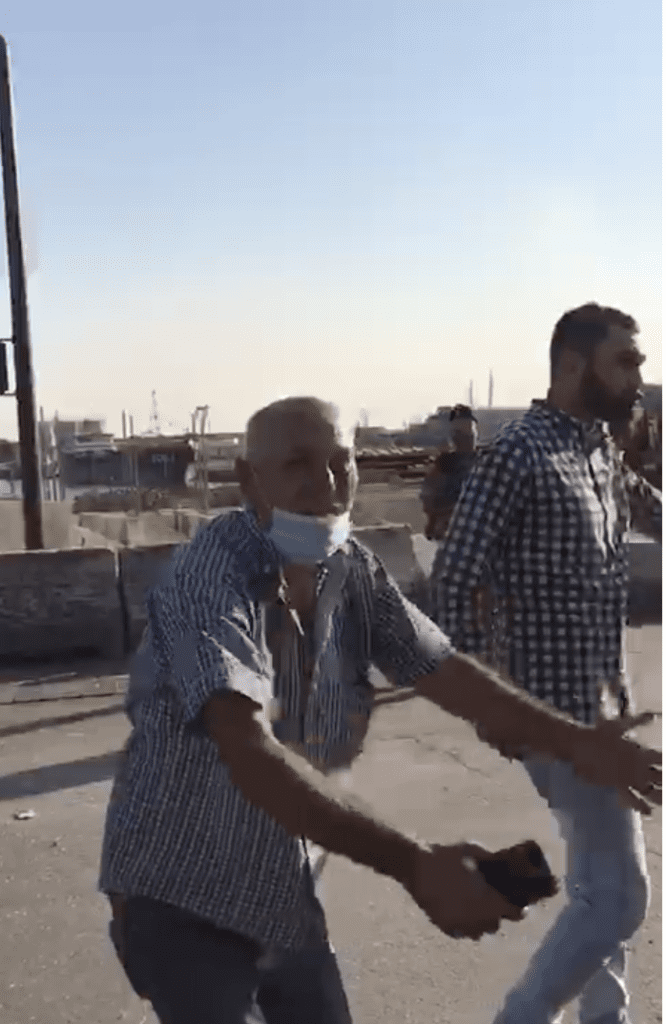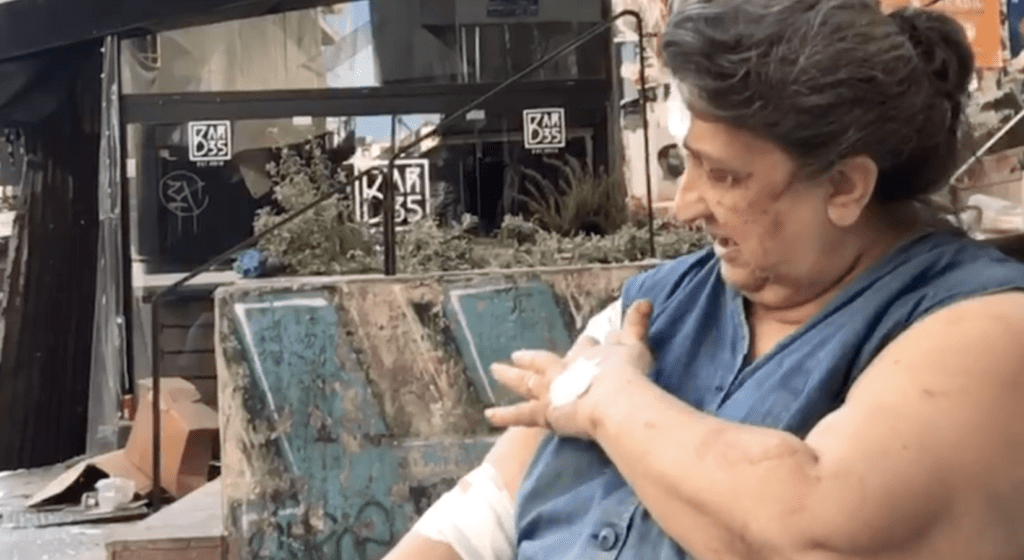
“Oh, my beloved one… I’d give my life for you Imad…”
The man hit his head with his hands and kept uttering these words “Oh, I’d give my life for you,” while moving around himself in front of one of the entrances of Beirut port, where the catastrophic blast took place, where dozens of people are still missing under the rubble, including Imad, the son of this man.
He was overwhelmed that he lost his ability to speak, he was only in tears, and forgot how to walk.
He was not the only case. The scene of the families rushing to the blast site to look for a husband, a son, or a brother was heartbreaking.
There was also Ali Mashik’s family who went to several hospitals and centers, in search of their son and went to the blast site, in the hope of obtaining any information about him. Ali, a middle-aged man in his thirties, had lost his permanent job in one of the companies in the aftermath of the economic crisis, and to be able to support his wife and three children, he embarked on a new job in the Wheat silos at the port of Beirut two months ago, where he was paid 20.000 pounds a day, equivalent to two and a half dollars.
“On the day of the explosion, Ali finished his work at 4 p.m.,” said Ali’s wife, “But he received a call telling him he had to get back as there was a shipload he had to unload, he went and disappeared and his family never heard from him again. “I want the government to respond… just to tell us is he dead or alive,” she said then burst into tears.
Nearby, family members of one of the military personnel missing in the blast were sitting on the ground looking at the sky and asking the passers-by if they heard any news of their son, who was serving in the port and they lost track of him.
The calamity and trauma of the families searching for their missing ones were undoubtedly the most horrific matter in the bloody scene of Beirut. The city woke up to total devastation that conjured up the image of the World War Two cities in ruins. The devastation that seemed shocking and traumatic in a way the city had never seen before in all its hard-to-count calamities and wars.
No one was spared the perils of the blast, the death, injury, or the mass destruction, yet the tragedy of the missing people remained the most severe. There are dozens of port workers and military personnel who were serving there, along with the Red Cross and Civil Defense staff who hurried to the blast site, then went missing.
The stories are still unfinished, Beirut’s residents shall put an end to them, and they will commemorate their tragedy through the faces of their loved ones they have lost. Meanwhile, the people at the helm will never resign, even if we were hit by a nuclear bomb.
Beirut does not look the same
The Lebanese capital has survived wars, explosions, assassinations, battles, and invasion, however, it could not survive the negligence explosion that erupted due to the unsafely storing of 2.750 tonnes of ammonium nitrate, which caused the death of 80 victims and the injury of nearly 3.000 people.
Inevitably, the time for political and social accountability shall come, but now is the time of the search for survivors and probing the causes of this disaster. Beirut has lost itself, its image, and all its characteristics today.
The great blast has wiped out everyone’s favorite places, whether it was a coffee shop, an old house, a store, or a property.
Mar Mikhael neighborhood, parallel to Beirut’s port and the hub of the city to all young people who were staying up all night there, has witnessed widespread destruction, stores, restaurants, and houses have been devastated. The streets were covered with shattered glass, ashes, and broken car parts.


At the entrance of one of the destroyed stores, Mrs. Siham Takyan sat on a chair with her wounds bandaged. When the explosion took place, she was in her apartment in the same building and was severely injured. She said she was lucky that she was not in the shop during that time, maybe she would not have survived. Mrs. Siham has spent hours trying to find a hospital to treat her, as hospitals were under extraordinary pressure due to the growing number of injuries. and some hospitals were severely hit by the blast, which forced them to close and transfer patients to other hospitals. A doctor in a hospital in Zgharta city in Northern Lebanon was telling the story of a woman who fled Al Roum hospital in Beirut to Zgharta holding her newborn who was only born five hours earlier. Moreover, Al Najda Al Chaabia hospital in Nabatieh in Southern Lebanon received dozens of injured as well.
“I went to several hospitals and they were unable to admit me to the hospital, I saw two people dying in Al Arz hospital and they could not save them, and I could not even find medical gauze in the hospital,” said Siham.
Siham points to her legs that are still bleeding, she could not even find ice to cool her arteries due to the power outage, she could not find ice anywhere in the street.
Siham had survived the Lebanese Civil War and many other hardships in Beirut, but the night of August 4th, 2020 was the worst of all.
“This is the worst experience I have ever been through, we are sitting in the streets and the elders are in their homes. We have become homeless, everything has been destroyed and I do not know where to go? I am in pain,” said Siham, and a tear ran down her cheek.
Siham spent her day on the chair, and nearby, a man spent his night sitting on the ground near his shop. They have no clear idea of what to do next.
The stories are still unfinished though, Beirut residents shall put an end to them, and they will commemorate their tragedy through the faces of their loved ones they have lost. Meanwhile, the people at the helm will never resign even if we were hit by a nuclear bomb.





